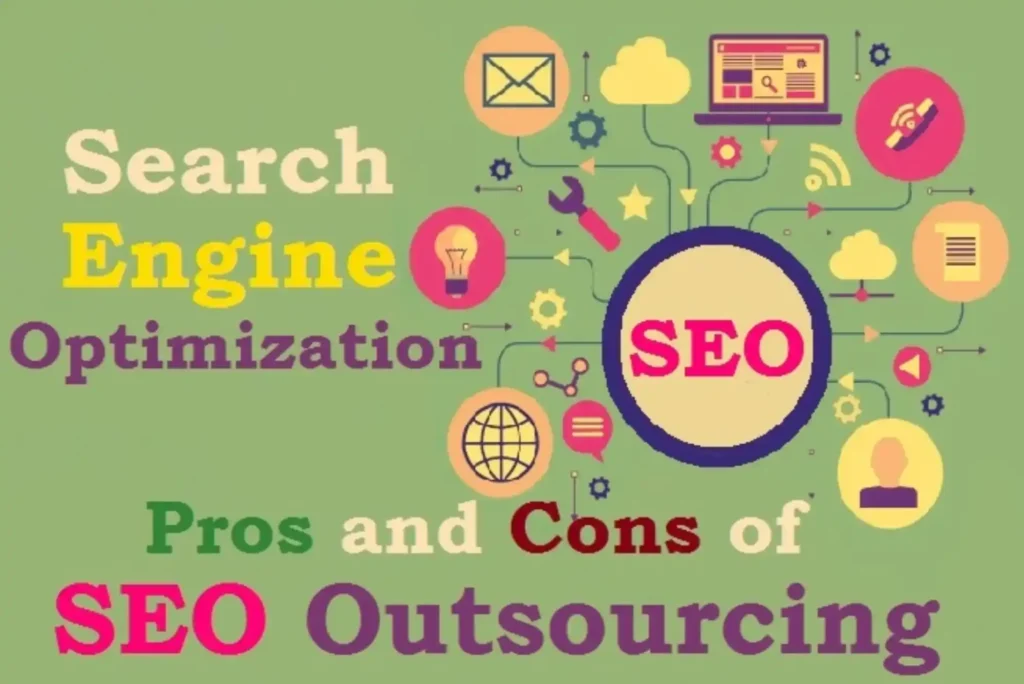Search engine optimization (SEO) is a critical aspect of digital marketing. As businesses strive to increase online visibility and improve search rankings, they often face the decision of whether to handle SEO in-house or outsource it to professionals. Both options have unique benefits and drawbacks. This article delves into the professionals cons of outsourcing search engine optimization, helping businesses make an informed decision.
Understanding Outsourcing in SEO
Outsourcing SEO involves hiring external agencies or professionals to manage various aspects of SEO, such as keyword research, on-page optimization, content creation, link building, and technical SEO. By doing so, companies can focus on other core business functions while leaving their SEO needs to specialists. However, while outsourcing can be highly effective, it may not suit every organization’s unique needs.
Pros and Cons of Outsourcing SEO
| Aspect | Pros | Cons |
|---|---|---|
| Expertise and Knowledge | Access to specialized skills and experience | Dependency on external experts |
| Cost-Effectiveness | Potential cost savings compared to building an in-house team | Can be expensive, especially for smaller businesses |
| Scalability | Easier to scale SEO efforts with a larger team | May lead to lack of control over strategy |
| Focus on Core Business | Frees up internal resources to focus on main business activities | Reduced internal involvement in SEO |
| Resource Availability | Access to a wide range of SEO tools and resources | Limited direct access to tools and reports |
| Result Expectations | Clearer performance metrics and defined deliverables | Potential for delayed results |
| Communication | Regular updates and reports from the agency | Risk of miscommunication or lack of transparency |
| Quality Control | Agencies may have strict quality standards | Varying quality based on agency standards |
Pros of Outsourcing SEO
Outsourcing SEO has many advantages, particularly for businesses that lack the resources or expertise to handle SEO internally. Here are some primary benefits of outsourcing SEO:
Access to SEO Expertise
One of the most significant advantages of outsourcing SEO is the access to a team of experts. SEO agencies and professionals are well-versed in the latest industry trends, best practices, and algorithm updates. They bring a wealth of experience that can drive faster results. By outsourcing, companies benefit from specialized skills without the need to invest in hiring and training an in-house team.
Cost Savings
While hiring an SEO agency might seem expensive, it can be more cost-effective than building an in-house team. With outsourcing, companies avoid costs associated with employee salaries, benefits, and training. Additionally, SEO agencies already have access to various tools and resources, which can be costly for companies to purchase independently.
Scalability
Outsourcing allows businesses to scale SEO efforts based on their needs. SEO agencies can adjust strategies and resources to meet changing demands, whether it’s to handle seasonal spikes or launch a new campaign. Scaling SEO operations in-house may require hiring additional employees or purchasing more resources, which can be time-consuming and expensive.
Time Savings and Focus on Core Business
By outsourcing SEO, businesses can save valuable time and focus on their core competencies. An external agency manages the intricacies of SEO, allowing the company to allocate internal resources more effectively. This benefit is especially useful for smaller businesses that may not have the capacity to manage SEO tasks alongside other responsibilities.
Access to Advanced Tools and Resources
SEO agencies have access to a wide range of tools, including keyword research software, analytics platforms, and competitive analysis tools. Many of these tools come with high subscription costs, making them impractical for smaller businesses. Outsourcing provides companies with access to these resources without the financial burden.
Cons of Outsourcing SEO
Despite its advantages, outsourcing SEO is not without challenges. Businesses must consider these potential drawbacks before making a decision.
Limited Control Over Strategy
One of the major cons of outsourcing SEO is the reduced control over SEO strategy and execution. While agencies provide expertise, they may not fully align with the company’s brand values and goals. This disconnect can lead to strategies that, while effective, do not perfectly reflect the company’s identity.
Risk of Miscommunication
Outsourcing SEO introduces potential communication challenges. Miscommunication between the agency and the company can lead to misunderstandings about goals, expectations, and deliverables. To mitigate this risk, companies should establish clear communication channels and ensure regular updates.
Dependency on External Agencies
By outsourcing SEO, companies may become dependent on an external agency. If the agency discontinues its services or if the company decides to switch providers, the transition can be challenging and time-consuming. Furthermore, dependency may limit the company’s ability to make quick adjustments in strategy.
Potential for High Costs
While outsourcing can save money, it may also involve high costs, especially for smaller businesses with limited budgets. High-quality SEO services often come at a premium, and companies may find it challenging to secure affordable yet effective solutions. It is essential to evaluate the pricing structure and ensure it aligns with the company’s budget.
Variable Quality and Reliability
Not all SEO agencies are created equal. There is a risk of working with agencies that employ outdated or questionable tactics, which could harm the company’s online presence. To avoid this, companies should thoroughly vet potential agencies, review their track record, and verify their methods.
Making the Decision: In-House vs. Outsourced SEO
When deciding whether to outsource SEO, businesses must weigh the pros and cons in relation to their unique circumstances. Considerations include:
Budget Smaller companies may find outsourcing more cost-effective, while larger companies may benefit from an in-house team.
Control Preferences Companies that prefer hands-on control over SEO may lean towards an in-house team.
Required Expertise Organizations lacking SEO knowledge may benefit from the expertise provided by an agency.
Scalability Needs Companies with fluctuating SEO needs may prefer the flexibility of outsourcing.
How to Choose the Right SEO Agency
If a business opts to outsource SEO, choosing the right agency is crucial. Here are some tips to ensure a successful partnership:
Evaluate Experience and Expertise Look for an agency with a proven track record and experience in your industry.
Check for Transparent Communication Choose an agency that prioritizes communication and offers regular progress reports.
Ask About Their Techniques and Tools Verify that the agency uses ethical, white-hat SEO tactics and has access to high-quality tools.
Assess Flexibility and Scalability Ensure the agency can adapt its services to meet your changing needs.
Consider Client Reviews and Case Studies Client testimonials and case studies offer insights into the agency’s performance and reliability.
Outsourcing SEO can be an effective strategy for businesses seeking expertise, cost savings, and scalability. However, it also introduces potential challenges, including dependency, limited control, and communication issues. By weighing the professionals cons of outsourcing search engine optimization, companies can make an informed decision that aligns with their needs and goals. Ultimately, whether a business chooses to outsource or manage SEO in-house will depend on its budget, control preferences, and growth ambitions.







